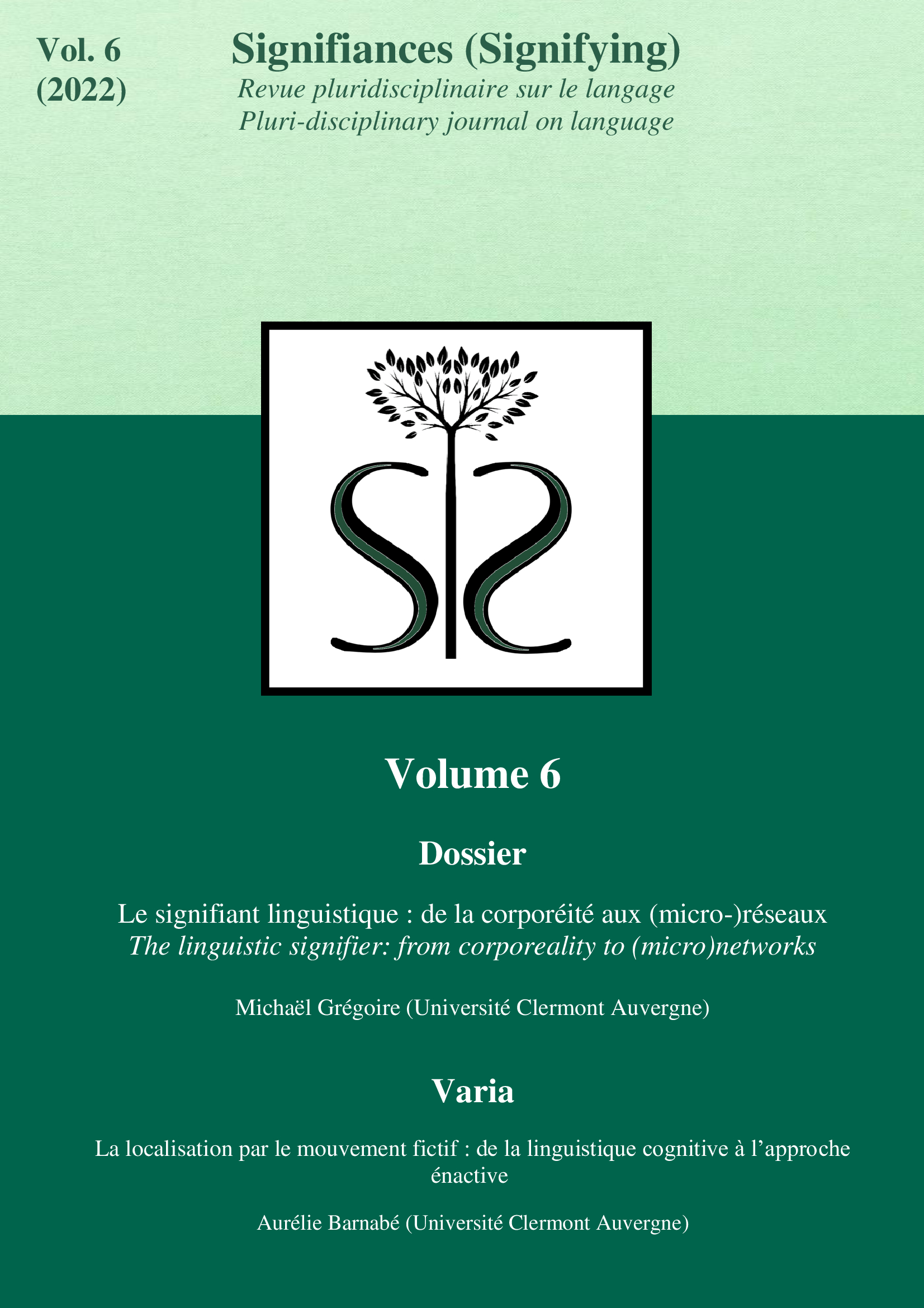Quizá introducteur d’une percontative (« Quizá cuánto tiempo »)
L’unicité du signe à l’épreuve d’un diatopisme chilien
DOI :
https://doi.org/10.52497/signifiances.v6i1.322Résumé
Dans cet article nous nous intéressons aux emplois de quizá comme introducteur d’une percontative (Quizá cuánto tiempo ‘qui sait combien de temps’), constructions jugées irrecevables dans toutes les aires hispanophones sauf au Chili, où ces emplois sont au contraire massivement attestés depuis le XXe siècle sans pour autant supplanter les emplois traditionnels de la forme en tant qu’adverbe épistémique (‘peut-être’). Depuis le cadre théorique de la linguistique du signifiant et de ses prolongements récents (analyse submorphémique), nous montrerons que le diatopisme chilien, loin de menacer le monosémisme de cet adverbe, n’est la trace ni d’une remotivation historique ni d’une nouvelle étape de grammaticalisation de la forme, mais une exploitation extrême, particulièrement méta-linguistique, d’un signifié unique et invariant qui fonde l’identité de cet adverbe dans le système pan-hispanique.


